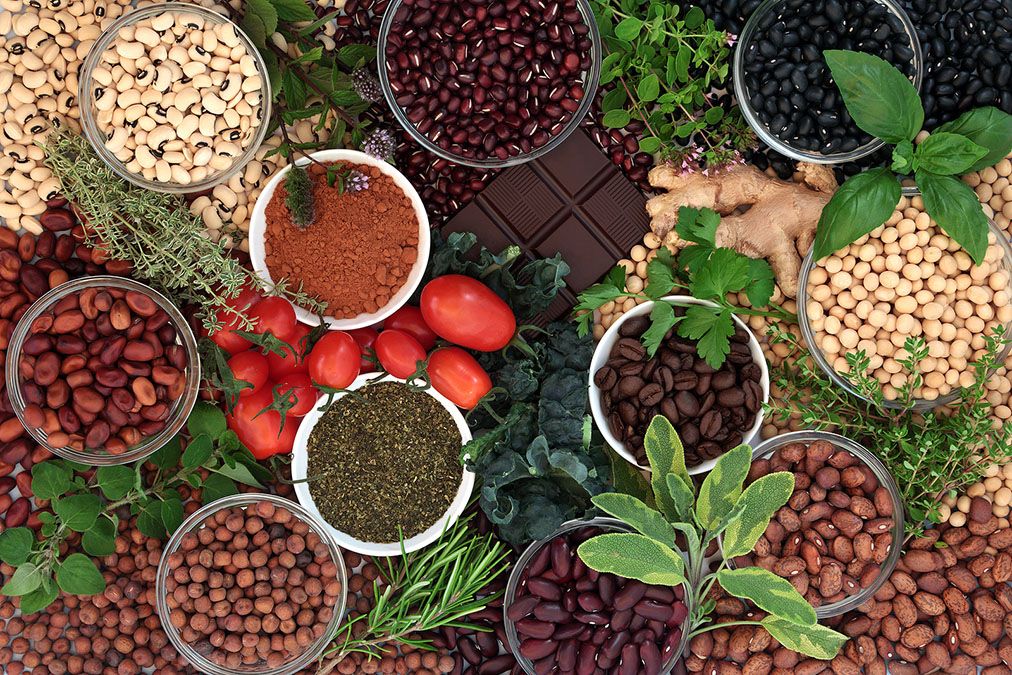 The usual advice given to sufferers of non-alcoholic fatty liver disease (NAFLD) is to lose weight and to eat less of this or that.
The usual advice given to sufferers of non-alcoholic fatty liver disease (NAFLD) is to lose weight and to eat less of this or that.
But a new study in Cell Metabolism states the opposite. To heal NAFLD, eat as much as you can of a specific, everyday ingredient.
Best of all, it’s found in many of the foods you’re already consuming. You just need to eat more of it.
Resistant starch is a type of starch that our bodies can’t digest in the small intestine. Instead, digestion occurs in the large intestine where it is fermented by gut bacteria. Some scientists believe it can positively influence our gut health and, as a result, other aspects of our well-being.
A new study, led by scientists from Friedrich Schiller University in Germany, aimed to see if this humble starch could make a real difference for those with NAFLD. Over 200 patients participated, and they were split into two groups: one took a resistant starch supplement and the other a control starch for four months.
The main outcome was encouraging.
Those who took the resistant starch showed a 9.08% reduction in liver fat.
However, the effects were not limited to fat reduction. The research showed that this starch could also reduce harmful liver enzymes and bring down levels of certain amino acids and gut bacteria linked to liver health issues.
One gut bacterium, named Bacteroides stercoris, which is strongly associated with NAFLD progression, was significantly reduced.
As such, the magic behind resistant starch lies in our colony of gut bacteria. As the starch ferments in the large intestine, it has the potential to alter our gut microbiome in a way that benefits our livers.
This connection between the gut and liver is so strong that scientists even have a name for it: the gut-liver axis.
The researchers commented that the idea of using food to treat NAFLD, especially foods targeting the gut microbiome, had been floated for some time. But until now, no substantial study has tested the potential of microbiome-focused foods to manage liver disease.
So, which foods contain resistant starch?
-
1. Legumes such as beans, lentils, and chickpeas.
2. Whole grains such as oats, barley, and brown rice.
3. Green bananas.
4. Potatoes and rice that have cooled after cooking, which can be eaten as potato or rice salad.
Together with the beneficial effects on the liver, the study also found that resistant starch helped participants to lose weight. As obesity is a risk factor for a multitude of conditions, from NAFLD to diabetes to heart disease, weight loss achieved through only a simple change in diet is ideal.

 Overcoming IBD
Overcoming IBD Multiple Sclerosis
Multiple Sclerosis Banishing Bronchitis
Banishing Bronchitis Gum Disease Gone
Gum Disease Gone Overcoming Onychomycosis
Overcoming Onychomycosis Neuropathy No More
Neuropathy No More The Prostate Protocol
The Prostate Protocol Brain Booster
Brain Booster
 Ironbound
Ironbound
 Solution for Shingles
Solution for Shingles
 The Bone Density Solution
The Bone Density Solution
 The Ultimate Healing Protocol
The Ultimate Healing Protocol
 The Parkinson's Protocol
The Parkinson's Protocol
 The Chronic Kidney Disease Solution
The Chronic Kidney Disease Solution
 Overthrowing Anxiety
Overthrowing Anxiety The Fatty Liver Solution
The Fatty Liver Solution The Hypothyroidism Solution
The Hypothyroidism Solution
 The End of Gout
The End of Gout The Blood Pressure Program
The Blood Pressure Program
 The Oxigized Cholesterol Strategy
The Oxigized Cholesterol Strategy
 Stop Snoring And Sleep Apnea Program
Stop Snoring And Sleep Apnea Program
 The Arthritis Strategy
The Arthritis Strategy The Vertigo & Dizziness Program
The Vertigo & Dizziness Program The 3-Step Diabetes Strategy
The 3-Step Diabetes Strategy Hemorrhoids Healing Protocol
Hemorrhoids Healing Protocol The Erectile Dysfunction Master
The Erectile Dysfunction Master Weight Loss Breeze
Weight Loss Breeze The IBS Program
The IBS Program The Insomnia Program
The Insomnia Program The Migraine and Headache Program
The Migraine and Headache Program The Neck Pain Solution
The Neck Pain Solution The Menopause Solution
The Menopause Solution The Ejaculation Master
The Ejaculation Master The TMJ Solution
The TMJ Solution The Acid Reflux Solution
The Acid Reflux Solution The Fibromyalgia Solution
The Fibromyalgia Solution The Psoriasis Strategy
The Psoriasis Strategy